Best Manures for Vegetable Gardens
- January 15, 2024
- 0 comment
Choosing the right manure is essential for a flourishing vegetable garden. Each type of manure comes with its own set of benefits and considerations, influencing soil nutrition and plant growth. From the versatile cow manure to the nutrient-rich rabbit droppings, understanding the nuances of these manures is crucial for cultivating healthy and abundant crops. This exploration delves into the best manures for vegetable gardens, providing insights into their characteristics, applications, and their vital role in producing thriving and nutrient-rich produce.
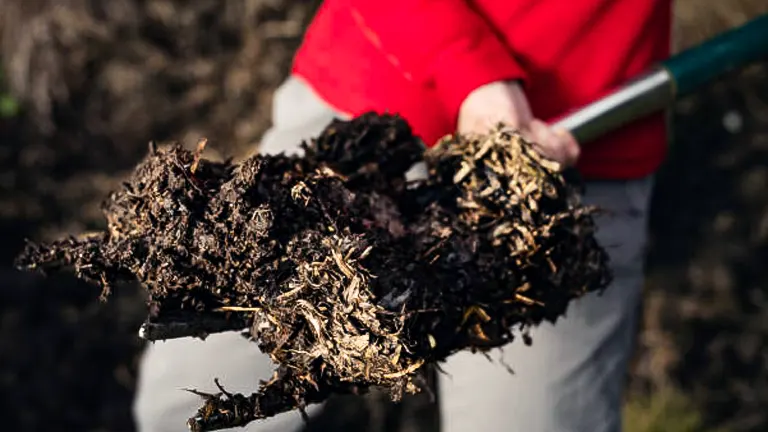
List of Best Manures for Vegetable Gardens
Understanding Soil Needs
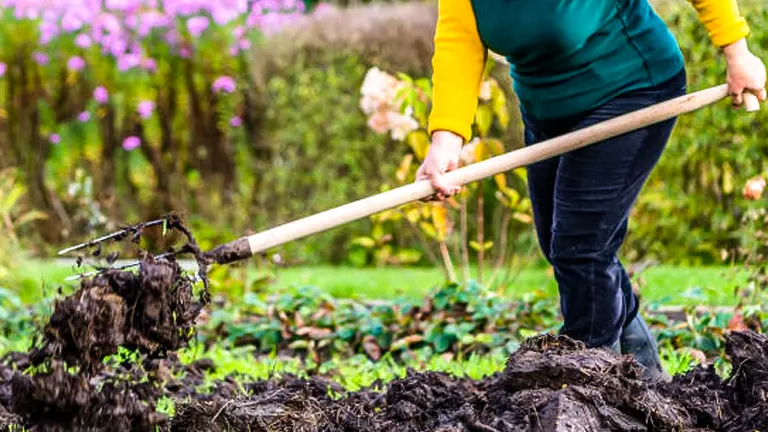
Manure plays a pivotal role in replenishing nutrients crucial for plant development. In the context of small-scale intensive gardening, where nutrient restoration poses a challenge, manure becomes a vital component for maintaining soil fertility. Additionally, the complementary relationship between manure and compost in organic gardening enhances overall soil health
Best Manures for Vegetable Gardens
1. Cow Manure
When it comes to choosing the best manure for vegetable gardens, cow manure is a top-tier selection for several compelling reasons. Its appeal lies in a meticulously balanced nutrient profile, perfectly suited for various crops, with a particular emphasis on fostering the growth of robust root vegetables. This nutrient powerhouse contains essential elements such as nitrogen, phosphorus, and potassium in optimal proportions, promoting overall plant health and vigor.
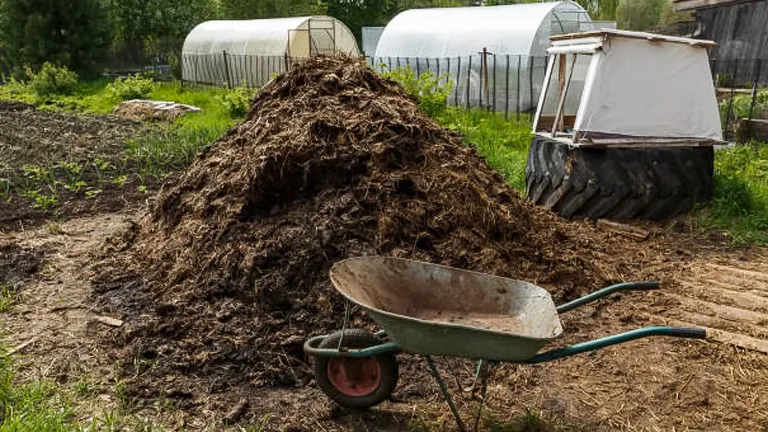
One of the key advantages of cow manure is its versatility, making it suitable for a wide range of crops beyond root vegetables. The balanced composition ensures that plants receive a comprehensive array of nutrients crucial for different stages of growth. Nitrogen facilitates lush foliage and robust stems, phosphorus supports vigorous root development, and potassium contributes to overall plant resilience.
Furthermore, cow manure enhances soil structure and water retention, creating an environment conducive to healthy root systems. Its organic matter content aids in improving soil texture, ensuring adequate aeration, and fostering microbial activity. This not only benefits the current crop but also lays the groundwork for sustainable, fertile soil in the seasons to come.
In essence, cow manure earns its status as one of the best manures for vegetable gardens due to its versatility, balanced nutrient content, and the holistic benefits it imparts to both plants and soil. Gardeners can rely on this nutrient-rich resource to cultivate thriving vegetable beds and enjoy bountiful harvests.
Pros and Cons
Pros:
- Balanced Nutrient Profile: Cow manure offers a well-balanced mix of essential nutrients, promoting overall plant health.
- Versatility: Suitable for a wide range of crops, including root vegetables, making it a versatile choice for various garden settings.
- Readily Accessible: Easily available, either for purchase or from local farms, making it a convenient option for gardeners.
- Compostable: Can be composted to enhance soil structure and fertility.
Cons:
- Weed Seeds: Despite being generally low, cow manure may contain weed seeds, necessitating proper composting or soil preparation.
- Nitrogen Levels: Excessive use may lead to high nitrogen levels, potentially burning plant roots, emphasizing the need for careful application.
- Odor: Fresh cow manure can have a strong odor, making it less desirable for immediate use without composting.
- Potential Pathogens: If not properly composted, cow manure may harbor pathogens, requiring attention to sanitation practices in handling.
2. Sheep Manure
Sheep manure takes the spotlight among the best manures for vegetable gardens due to its exceptional richness in potassium and nitrogen. This unique combination makes it an ideal choice for those aiming to elevate the flavor of fruits in their harvest. The high levels of potassium play a pivotal role in enhancing fruit taste and sweetness, making sheep manure an indispensable element for fruiting plants. Additionally, the nitrogen content ensures robust vegetative growth, contributing to not only flavorful but also healthy and resilient plants.
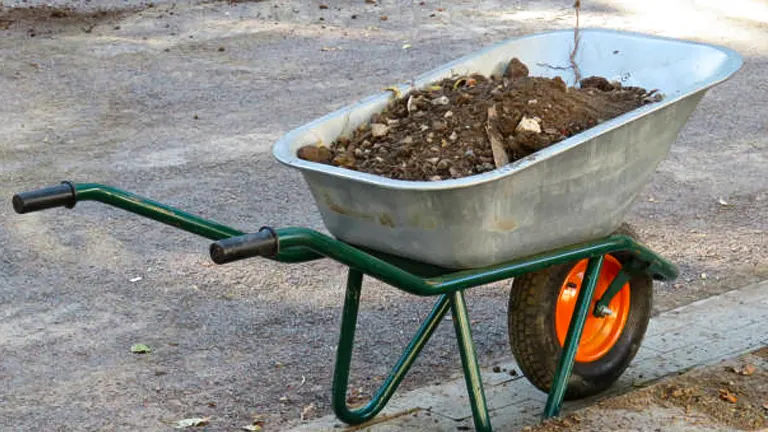
Beyond its flavor-enhancing properties, sheep manure significantly enriches the soil. The organic matter present in sheep manure improves soil structure, fostering better aeration and water retention. This creates an environment conducive to thriving root systems, ensuring optimal nutrient uptake by plants. The balanced nutrient content of sheep manure makes it a versatile choice, suitable for a variety of crops beyond fruits, further establishing its reputation as a top-tier manure for vegetable gardens. Embracing sheep manure ensures not only a tastier harvest but also the sustainable cultivation of thriving and resilient vegetable beds.
Pros and Cons
Pros:
- High Potassium and Nitrogen: Rich in potassium and nitrogen, ideal for enhancing fruit flavors and promoting robust plant growth.
- Balanced Nutrient Profile: Offers a well-balanced nutrient profile, contributing to overall soil fertility.
- Readily Available: Easily accessible, making it a convenient choice for gardeners seeking organic amendments.
- Compostable: Can be composted to improve soil structure and nutrient content.
Cons:
- High Nitrogen: Excessive use may result in elevated nitrogen levels, requiring careful application to prevent negative effects on plants.
- Potential Odor: Fresh sheep manure may have a noticeable odor, though it typically diminishes with proper composting.
- Pathogens: Like other manures, improper composting may allow pathogens to persist, emphasizing the importance of safe handling and composting practices.
- Weed Seeds: While generally lower than some manures, sheep manure may contain weed seeds, necessitating attention during composting or soil preparation.
3. Poultry Manure
When it comes to choosing the right manure for your vegetable garden, poultry manure stands out. It’s loaded with nitrogen, making it excellent for growing leafy greens and promoting their healthy development. The key benefit of poultry manure lies in this high nitrogen content, which is crucial for robust plant growth, especially for leafy greens that rely on strong foliage.
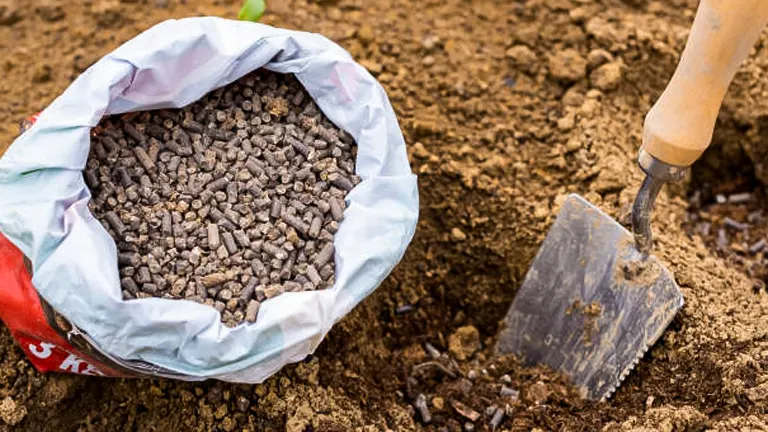
However, it’s essential to be cautious when using poultry manure because its high nitrogen levels can be too much for plants if applied excessively. Gardeners are advised to use it sparingly, blending it into the soil with consideration for the specific needs of their crops. This careful approach ensures that the nitrogen boost benefits the plants without risking any potential harm. In summary, poultry manure earns its spot among the best choices for vegetable gardens due to its nitrogen-rich composition, providing valuable support for the thriving growth of leafy greens. As gardeners incorporate poultry manure, they open the door to lush, vibrant greenery in their vegetable beds, highlighting its importance in enhancing organic and nutrient-rich soil.
Pros and Cons
Pros:
- High Nitrogen Content: Poultry manure is rich in nitrogen, a crucial nutrient for promoting robust vegetative growth in plants, especially leafy greens.
- Nutrient-Rich: It contains essential nutrients like phosphorus, potassium, and trace minerals, contributing to overall soil fertility.
- Effective for Leafy Greens: Ideal for crops that thrive on nitrogen, making it particularly beneficial for leafy vegetables and plants.
- Accelerates Composting: Poultry manure is known to speed up the composting process when added to a compost pile, providing a nutrient-rich base.
Cons:
- Potency: Due to its high nitrogen levels, poultry manure can be too strong if applied excessively, potentially leading to burns on plant roots.
- Caution Required: Gardeners need to use poultry manure sparingly and ensure it’s well-mixed or composted to prevent nutrient imbalances and potential harm to plants.
- Odor: Fresh poultry manure can have a strong and unpleasant odor, which may be a consideration for those sensitive to smells or with limited space.
- Pathogen Risk: If not properly composted, poultry manure may carry pathogens harmful to humans. Thorough composting is crucial for safety.
4. Horse Manure
Horse manure is widely regarded as one of the best manures for vegetable gardens, thanks to its exceptional versatility and nutrient-rich composition. Its broad spectrum of essential nutrients makes it an ideal, all-purpose addition that significantly contributes to overall soil health and fertility. This versatility renders it valuable for various crops, enhancing their growth and productivity. However, gardeners must approach its use with caution due to potential weed seed issues.
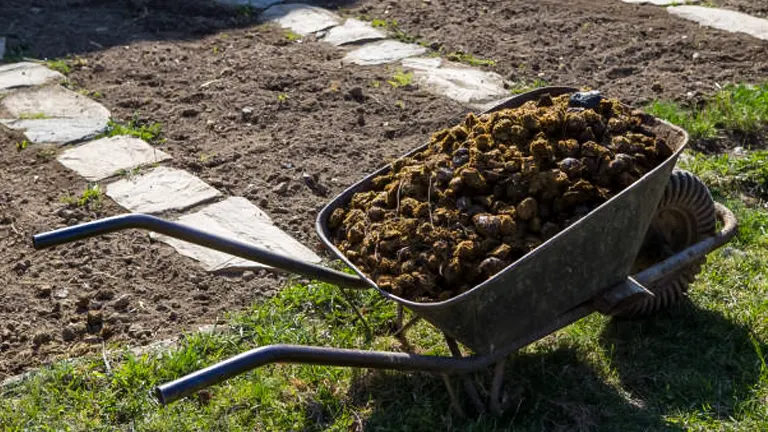
Despite its efficacy, the presence of weed seeds in horse manure calls for careful handling. To fully capitalize on its benefits while minimizing the risk of unintended consequences, gardeners are advised to either bury or compost the manure. This process not only aids in breaking down organic matter but also ensures that any weed seeds present are neutralized through heat. By incorporating horse manure with these precautions, gardeners can harness its versatility and nutrient richness, making it a powerful ally in fostering robust and flourishing vegetable beds.
Pros and Cons
Pros:
- Versatility: Horse manure proves versatile, catering to the needs of various crops and garden types. Its adaptability makes it a valuable addition to diverse gardening scenarios.
- Nutrient-Rich: Rich in essential nutrients, horse manure acts as a potent organic fertilizer. It supplies plants with the necessary elements for robust growth and development.
- Organic Matter: Beyond its nutrient content, horse manure contributes to the improvement of soil structure. It adds organic matter, enhancing the soil’s ability to retain water and fostering a healthy environment for plant roots.
- Readily Available: Accessing horse manure is often convenient, particularly when sourced from local stables. This accessibility makes it a practical choice for gardeners seeking a readily available and beneficial soil amendment.
Cons:
- Seed Issues: One potential drawback is the presence of weed seeds in horse manure. Careful application and composting are necessary to prevent unwanted weed growth in the garden.
- Composting Required: While a valuable resource, horse manure requires proper composting to mitigate the risk of weed problems. Composting also aids in breaking down the material for safer use in gardens.
- Odor: The fresh aroma of horse manure can be strong. This characteristic may be a consideration for gardeners sensitive to smells or those with space constraints.
- Pathogen Risk: To reduce the risk of pathogens, thorough composting of horse manure is essential. Proper composting ensures that the final product is safe for use in gardens, minimizing potential health concerns.
5. Rabbit Manure
Rabbit manure takes center stage among the best manures for vegetable gardens, celebrated for its nutrient-rich composition and ease of use. This unassuming yet powerful option is often hailed as superior in nutrient content compared to other manures, making it a standout choice for gardeners aiming to enhance soil fertility and promote healthy plant growth.
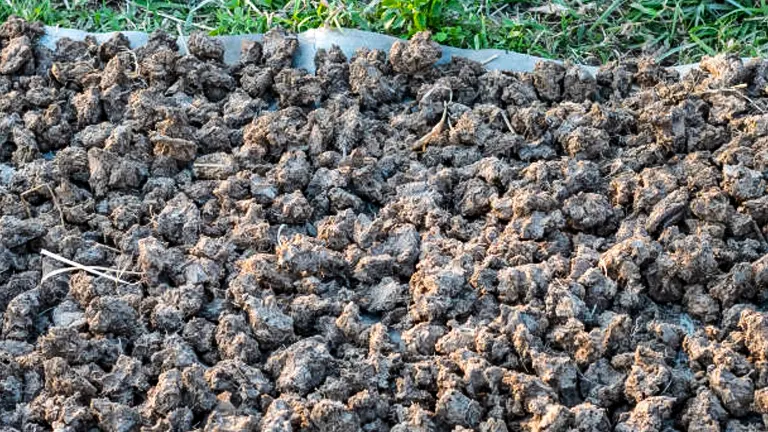
The key to rabbit manure’s excellence lies in its unparalleled nutrient richness. Studies from the Michigan State University extension program reveal that rabbit manure boasts four times more nutrients than cow or horse manure and is twice as rich as chicken manure. This nutritional potency, coupled with its low-maintenance nature, positions rabbit manure as a top-tier choice for those seeking optimal results in their vegetable gardens. Its superiority in nutrient content, combined with its simplicity, cements its status among the best manures for vegetable gardens, promising a flourishing and thriving harvest for those who choose this organic and efficient soil amendment.
Pros and Cons
Pros:
- Nutrient-Rich and Low-Maintenance: Rabbit manure stands out as a nutrient-rich option that requires minimal effort from gardeners. Its high nutrient content provides an excellent source of nitrogen and phosphorous for plant growth.
- Superior Nutrient Composition: According to the Michigan State University extension program, rabbit manure boasts four times more nutrients than cow or horse manure and is twice as rich as chicken manure. This exceptional nutrient composition makes it a preferred choice for gardeners aiming to maximize the nutritional benefits for their plants.
- Ease of Use: Rabbit manure is user-friendly. While composting is recommended for optimal results, it can be added directly to the soil in a bind. This low-maintenance aspect adds to its appeal, offering flexibility for gardeners with varying levels of experience.
- Comparative Advantage: When compared to other manures, rabbit manure often emerges as a superior option in terms of nutrient concentration. This makes it an attractive choice for those seeking an efficient and nutrient-packed addition to their gardens.
Cons:
- Potential Crop Damage: While rabbit manure is beneficial, the presence of rabbits in the garden can lead to crop damage. Gardeners may need to address the challenge of protecting plants from rabbits while still enjoying the benefits of their nutrient-rich manure.
- Limited Quantity: The quantity of rabbit manure available may be limited, especially for those who do not raise rabbits themselves. Obtaining sufficient amounts for larger gardens may require additional considerations and sourcing efforts.
- Composting Recommended: While not mandatory, composting rabbit manure is still recommended for optimal results. Composting helps break down the material, making it more accessible to plants and reducing the risk of potential issues associated with fresh manure application.
Blends, Mixes, and Additional Options
1. Manure Blends
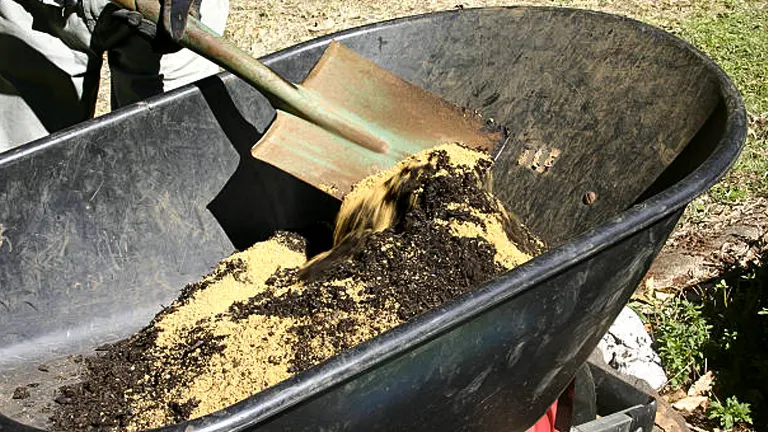
Manure blends, combining rock minerals, blood and bone, and compost, offer a straightforward approach to enriching soil. These blends provide essential trace elements from rock minerals, major nutrients from blood and bone, and improved soil structure from compost. Together, they create a balanced mix of nutrients that supports plant growth. Gardeners using manure blends can enhance the overall health of their soil, promoting better conditions for robust and healthy plant development.
2. Pelletized Fertilizers
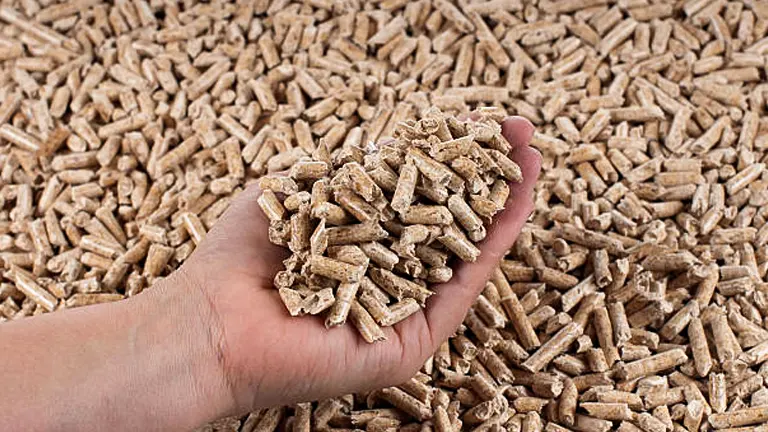
Pelletized fertilizers stand out as a practical choice, offering a slow-release mechanism that seamlessly complements various manure applications. These pellets, designed for gradual nutrient release, provide a consistent and balanced supply of essential nutrients to the soil. Their efficiency lies in meeting the evolving nutritional needs of growing plants, ensuring sustained and enhanced soil nutrition. When incorporated alongside other manure sources, pelletized fertilizers become a valuable tool for gardeners, contributing to the overall health and vitality of cultivated plants.
3. Blood and Bone Fertilizers
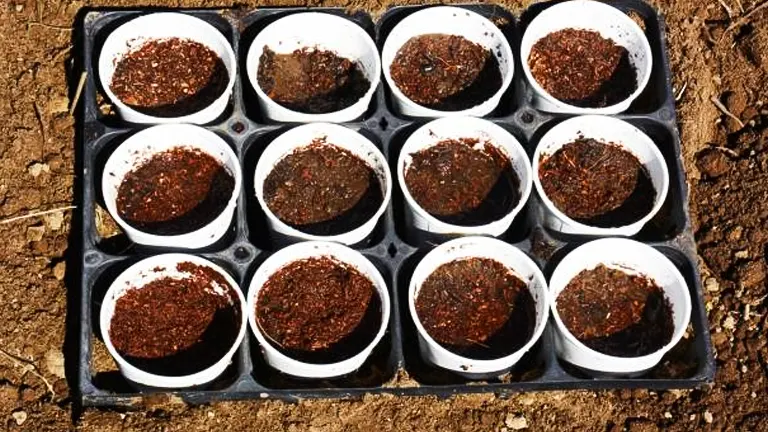
Blood and bone serve as a straightforward and potent source of major plant nutrients, delivering a significant boost to your garden. Rich in nitrogen and phosphorus, this natural combination provides the fundamental elements necessary for robust plant development. By incorporating blood and bone into your soil routine, you supply your plants with the essential building blocks for healthy and sustained growth, fostering a thriving garden environment.
4. Rock Minerals
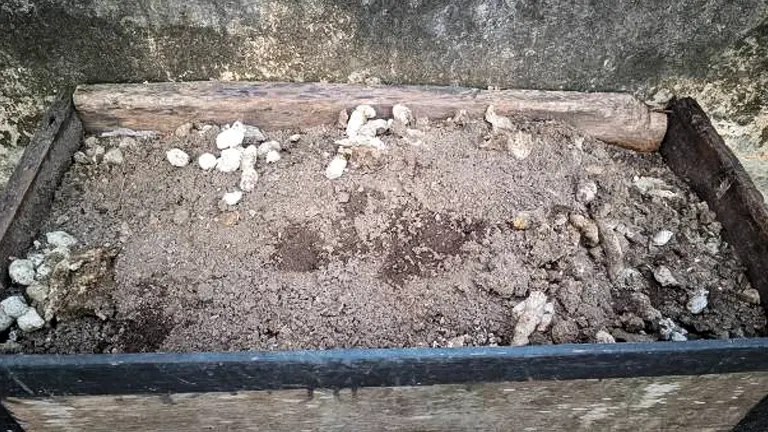
For beds with lots of organic matter, adding rock minerals is crucial. They provide necessary trace elements for plant health, addressing potential deficiencies in the soil and supporting robust plant growth. By incorporating rock minerals into your gardening routine, you ensure your plants get all the essential elements they need, promoting optimal health and resilience.
Benefits of Using Manures for Vegetable Gardens
- Nutrient Enrichment: Manures are rich sources of essential nutrients like nitrogen, phosphorus, and potassium, vital for plant growth. They act as natural fertilizers, providing a diverse range of elements necessary for robust and healthy crops.
- Soil Structure Improvement: Manures contribute organic matter to the soil, enhancing its structure. This results in improved aeration, water retention, and overall soil health. Better soil structure facilitates root development and nutrient absorption by plants.
- Microbial Activity Boost: Manures support the growth of beneficial soil microorganisms. These microbes play a crucial role in breaking down organic matter, releasing nutrients in forms that plants can readily absorb. Increased microbial activity contributes to a thriving soil ecosystem.
- pH Regulation: Certain manures, like poultry and sheep manure, can help regulate soil pH. They act as natural pH buffers, preventing extreme fluctuations and creating a more stable environment for plants. This is particularly beneficial for crops with specific pH preferences.
- Sustainable Soil Management: Utilizing manures is an eco-friendly approach to soil management. It recycles organic waste from animals, reducing the environmental impact. It aligns with sustainable gardening practices, promoting a circular system that benefits both plants and the ecosystem.
- Cost-Effective Fertilization: Manures, especially those obtained locally, offer a cost-effective alternative to commercial fertilizers. Accessible from farms or as by-products, they provide a budget-friendly means of enhancing soil fertility without compromising on quality.
- Reduced Chemical Dependency: By incorporating manures, gardeners can reduce reliance on synthetic fertilizers. This shift minimizes the introduction of harmful chemicals into the environment, promoting a more natural and eco-conscious approach to gardening.
- Water Efficiency: Improved soil structure resulting from manure application enhances water retention. This, in turn, increases water efficiency in the garden, as the soil can better hold moisture, reducing the frequency of irrigation and conserving water resources.
- Enhanced Plant Resilience: The diverse array of nutrients in manures contributes to plant resilience. Healthy, well-nourished plants are better equipped to withstand environmental stressors, pests, and diseases, resulting in more robust and productive vegetable gardens.
- Organic Matter Recycling: Manures represent a valuable means of recycling organic matter. By incorporating animal waste back into the soil, gardeners close the nutrient loop, promoting a sustainable and cyclical system that supports continuous soil improvement.
Practical Tips for Purchasing and Usage
- Premium Quality Matters: When shopping for manure, always opt for the ‘premium’ versions. These products tend to have fewer fillers compared to cheaper alternatives, ensuring a higher concentration of valuable nutrients for your garden soil.
- Know Your Soil’s Needs: Understand the specific nutrient requirements of your soil before choosing a manure. Different crops and soil types have varying needs, and selecting manure based on these requirements ensures targeted and effective soil enrichment.
- Local Accessibility: Utilize locally available manure sources whenever possible. Whether you have access to chicken manure from your backyard coop or can obtain horse manure from a nearby stable, locally sourced manure is often more sustainable and budget-friendly.
- Experiment with Blends: Consider using manure blends that incorporate rock minerals, blood and bone, and compost. These blends provide a comprehensive approach to soil enrichment, addressing various nutritional needs and promoting overall soil health.
- Pelletized Fertilizers as Complements: If available, use pelletized fertilizers in conjunction with manure. These fertilizers offer a slow-release mechanism, gradually providing nutrients to the soil. When combined with manure applications, they ensure a sustained and balanced nutrient supply.
- Blood and Bone for a Boost: If your garden needs a significant nutrient boost, consider adding blood and bone. This natural combination provides major plant nutrients, including nitrogen and phosphorus, laying a strong foundation for healthy and robust plant growth.
- Incorporate Rock Minerals for Trace Elements: In beds rich in organic matter, include rock minerals to provide essential trace elements crucial for plant health. These minerals address potential deficiencies in the soil, contributing to a more comprehensive nutrient profile.
- Mindful Poultry Manure Application: While poultry manure is high in nitrogen and beneficial for leafy greens, use it sparingly due to its strength. Incorporate it into the soil with consideration of your specific crop requirements, avoiding excessive application that may overwhelm plants.
Adhering to these practical tips ensures a thoughtful and effective approach to using manures in your vegetable garden, promoting optimal soil health and yielding bountiful harvests.
Conclusion
In conclusion, the choice of manure significantly impacts the health and productivity of your vegetable garden. Understanding the unique characteristics of each type, from the versatile cow manure to the nutrient-rich rabbit droppings, allows you to make informed decisions. Consider the specific needs of your soil, the crops you’re cultivating, and follow practical tips for optimal results. By doing so, you set the stage for a thriving garden, where plants flourish, and the harvest is both abundant and nutritious. Make thoughtful choices, experiment with blends, and enjoy the satisfaction of a successful and sustainable vegetable garden.
FAQs
- Can I use fresh chicken manure in my vegetable garden, or is composting necessary?
Fresh chicken manure is not recommended directly in the garden due to its high nitrogen content, which can burn plant roots. Composting or allowing it to age is essential to mellow the potency, ensuring it becomes a safe and effective fertilizer for vegetables. - What makes rabbit manure a superior choice for vegetable gardens?
Rabbit manure is nutrient-rich, containing four times more nutrients than cow or horse manure and twice as rich as chicken manure. Its low-maintenance nature makes it an excellent option for direct application, although composting is still recommended. - How does cow manure contribute to soil fertility, and is there a risk of weed seeds?
Cow manure offers a balanced nutrient profile, enhancing overall soil fertility. While generally low, there is a slight risk of weed seeds. Composting or proper soil preparation helps mitigate this risk, ensuring a nutrient-rich and weed-free environment. - Is horse manure suitable for all crops, and how can potential seed issues be managed?
Horse manure is versatile but may contain weed seeds. Burying it deeper in garden beds or composting at higher temperatures helps neutralize seeds, making it a safe and effective addition to vegetable gardens. - Why is poultry manure particularly beneficial for leafy greens, and how should it be applied?
Poultry manure’s high nitrogen content makes it ideal for leafy greens, promoting lush foliage. However, caution is advised due to its potency. Using it sparingly and incorporating it into the soil ensures its benefits without risking burns to plants. - Can sheep manure lead to nitrogen imbalances, and how should it be used for optimal results?
Sheep manure can elevate nitrogen levels if overused. Careful application and monitoring prevent imbalances, making it a great choice, especially for fruit-bearing plants seeking potassium and nitrogen for enhanced flavor. - How does using manures contribute to sustainable gardening practices?
Manures contribute to sustainability by recycling organic waste, reducing reliance on synthetic fertilizers, and fostering a circular system. This eco-friendly approach promotes soil health, minimizes environmental impact, and aligns with responsible gardening practices. - Are there alternatives to using fresh manure, and how can they be incorporated into vegetable gardens?
Composted manure, bagged manure, and manure blends with other organic materials provide alternatives to fresh manure. These can be applied directly or mixed into the soil, offering convenience, reduced odor, and a controlled release of nutrients for optimal vegetable growth.
In the world of vegetable gardening, the right manure can make all the difference. Whether you choose cow, rabbit, or poultry, each has its unique benefits for a flourishing garden. So, as you tend to your plants, let the goodness of natural fertilizers pave the way for a harvest that’s as vibrant as your gardening journey. Happy planting!

Benjamin Brooks
Forestry AuthorGreetings! I'm Benjamin Brooks, and my journey over the past 15 years has revolved around the fascinating realms of content creation, expertise in snow clearing, and the intricate world of lumberjacking and landscaping. What began as a simple curiosity about the natural world and heavy machinery has evolved into a passionate profession where my love for crafting words intertwines seamlessly with my lumberjacking and garden skills.













Leave your comment